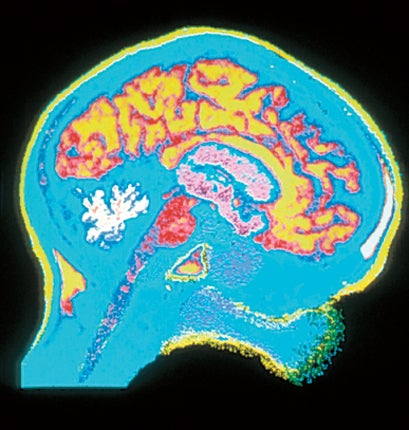Magnets can improve Alzheimer's symptoms

Your support helps us to tell the story
From reproductive rights to climate change to Big Tech, The Independent is on the ground when the story is developing. Whether it's investigating the financials of Elon Musk's pro-Trump PAC or producing our latest documentary, 'The A Word', which shines a light on the American women fighting for reproductive rights, we know how important it is to parse out the facts from the messaging.
At such a critical moment in US history, we need reporters on the ground. Your donation allows us to keep sending journalists to speak to both sides of the story.
The Independent is trusted by Americans across the entire political spectrum. And unlike many other quality news outlets, we choose not to lock Americans out of our reporting and analysis with paywalls. We believe quality journalism should be available to everyone, paid for by those who can afford it.
Your support makes all the difference.To sceptics of alternative medicine, it will come as a surprise. Applying magnets to the brains of Alzheimer's disease sufferers helps them understand what is said to them. The finding by Italian scientsts, who conducted a randomised controlled trial of the treatment, suggests that magnets may alter "cortical activity" in the brain, readjusting unhealthy patterns caused by disease or damage. The study was small, involving just 10 patients, and the results are preliminary.
But the scientists from Brescia and Milan say they "hold considerable promise, not only for advancing our understanding of brain plasticity mechanisms, but also for designing new rehabilitation strategies in patients with neurodegenerative disease."
Sweeping claims are made for magnet therapy, including stimulating hair growth, boosting energy and warding off arthritis. Magnetic bracelets and jewellery, hairbrushes, insoles and even dog bowls are a lucrative branch of the alternative medicine industry.
Evidence for most of these claims is dubious or non-existent. But one product gained sufficient credence in orthodox circles to to be made available on the NHS. Since 2006 a device called the 4UlcerCare – a strap containing four magnets that is wrapped around the leg – has been available on prescription from GPs. Its maker, the Bristol-based firm Magnopulse, claims that it speeds the healing of leg ulcers and prevents their recurrence. It is believed that the magnets stimulate the circulation but it is not known how.
Findings from the latest study, published in the Journal of Neurology, Neurosurgery and Psychiatry, are likely to be seized on as further evidence of magnetism's healing powers. Although many may scoff, the capacity of magnets to affect the working of the brain is already well established.
Transcranial magnetic stimulation (TMS), the technique investigated by the Italian scientists, has already been shown in separate experiments by British researchers to temporarily stun the part of the brain which controls speech, rendering volunteers unable to utter familiar words. Using a paddle placed on the head and focusing the TMS on an area of the brain at the back of the left frontal lobe, researchers found they could halt speech in mid flow. The volunteers reported having the words "right there" in their heads but were unable to make them "come out".
In a similar way, a magnetic wand waved over the left side of the head, can make the right arm jump involuntarily. The excitation of the neuronal pathways that this demonstrates suggests, according to researchers, that the technique might be useful in the rehabilitation of stroke victims.
For the latest study, Maria Costelli and colleagues applied repetitive TMS – a rapid succession of magnetic pulses – to the prefrontal lobes of the Alzheimer's patients for 25 minutes at a time.
Half the patients received daily doses five days a week for four weeks and half received a dummy treatment for two weeks followed by two weeks of TMS. Tests showed that those who had the full course of TMS had significantly higher scores on comprehension of what was said to them – up from 66 per cent to 77 per cent. The improvement was still evident eight weeks after treatment.
The authors say the technique did not affect other language abilities or other cognitive functions, including memory, which suggests that it is "specific to the language domain of the brain when applied to the prefrontal lobes".
Join our commenting forum
Join thought-provoking conversations, follow other Independent readers and see their replies
Comments